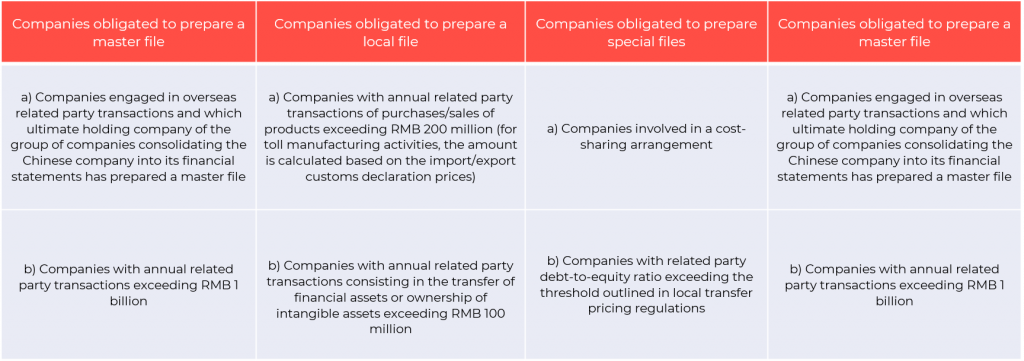Audit reporting is a crucial aspect of business compliance in China. Currently, the annual audit and tax season are ongoing until about the middle of the year. Some companies have yet to organize their paperwork (manual, digital, or automated) to comply with governmental requirements on audited financial statements. During audit reporting, companies and relevant authorities may analyze, compute and collate accounting and taxable profits (in some cases dissimilar) during the previous calendar year based on internal records.
Take a look at our previous article on Accounting Software: Moving Away from Spreadsheets
Companies must comply with audit reporting on behalf of all stakeholders – owners, government bodies, shareholders, creditors, suppliers, and customers. Through accounting and reporting of financial statements, managers can communicate particulars of the business operations to said stakeholders.
Financial statement and audit reporting for foreign companies
As the world’s second-largest economy, China attracts numerous foreign capital in the form of foreign-invested companies. Hence, these companies continue to establish their corporate presence in China. For each governing body that regulates these companies, year-end reports and taxes are consistently required year by year. This is to ensure that all companies are compliant with the Chinese Accounting Standards (CAS) and at the same time reflective of the accurate financial position and performance of the company.
Read about Chinese Accounting Standards for Enterprises: Key Changes
April 30 deadline
Companies need to conduct an external audit through a Chinese-registered Certified Public Accountant (CPA). The assigned CPA will apply the audit procedures and verify the company’s management’s assertions (or figures presented) on the following standard reports:
- Balance sheet
- Income statement
- Cash flows statement
- Statement of changes in equity
- Notes to financial statements
In Shanghai, a CPA will need to verify an additional Taxable Income Reconciliation Sheet. However, each region in China would require different variations for the compliance of the above reports. It is the responsibility of the companies and their management to ensure what their local rules require and if any additional reports need to be fulfilled. Since the reports are done for the Chinese government, it naturally follows that audit reports must also be in Chinese. However, the reports may also be prepared in the English language for group reporting of foreign companies and other subsidiaries.
May 31 deadline
Annual Corporate Income Tax Filing is compulsory for the payment of Corporate Income Tax (CIT) in China (25 percent of taxable income). However, preferential tax rates apply to SMEs. This CIT is payable on a monthly or quarterly basis. Naturally, accounting profits and taxable profits often differ from each other due to discrepancies in tax laws and accounting standards.
As per the Chinese setting, there are discrepancies between the CAS and the local tax laws. The monthly or quarterly payments, upon annualization (corporate taxes computed for the whole year) of taxes, may require an adjustment. Therefore, excesses in CIT payments may be reimbursed if the company applies for it. On the other hand, payment of supplementary taxes must be made to cover the deficiencies in the tax payments.
Tax reconciliation for both foreign and local companies is a requirement from the State Administration of Taxation. The local tax bureaus will have been issuing guidelines regarding tax reconciliations and other matters during the first few months of the year.
In China, tax adjustments may occur when:
- The “fapiao” can no longer be obtained yet the particular expense was already expected to be deductible;
- Some clients’ payments were expected to be received in the final quarter but instead brought forward to the next quarter (following year);
- The annual profit and CIT calculations may be reflective of clients’ cancellations due to the COVID-19 pandemic.
Transfer pricing reporting
Companies that have transactions with related parties should also prepare transfer pricing reports as part of tax reconciliations. Companies that qualify are obligated to prepare either master files, local files, or special files:

Preparations for these reporting requirements usually start in February taking into consideration the May 31st deadline. However, it is worth note-taking that processing and review by the local tax bureaus of your respective regions may carry on past the deadline and last until the end of the fiscal year. Local tax bureaus also reserve the right to request additional information as requested.
June deadline
Foreign Invested Enterprises or FIEs are required to proceed with the submission of mandatory information to various government authorities including:
- Ministry of Commerce (MOFCOM)
- State Administration for Market Regulation of Industry and Commerce (SAMR)
- State of Foreign Exchange (SAFE)
- Finance Authority
- Customs Authority
The last two are usually for trading companies. These authorities need to ensure that enterprises are compliant with Chinese regulations and the information provided to government agencies is up-to-date. Depending on the scope of business and district within the city, differences in document requirements may be observed. Moreover, the annual report that needs to be submitted must contain the following information:
- Basic information of the company and its status
- Top-level financial data
- Equity investments, if any
- Ultimate Beneficial Owner (UBO) information
Annual reporting for Representative Offices (ROs) are also required to comply with the requirements as they apply to all companies. However, ROs are required to submit to the local SAMR an annual inspection that includes the notarized and legalized business certificate of the foreign entity. Further, Chinese translations of the submitted documents are necessary and should be done promptly.
Recommendations for audit compliance
Starting the year-end audit as early as possible is beneficial in its way. Issues and challenges can be assessed and tackled better with more time. Interim audits (e.g. mid-year) or preliminary audits which are done in one to two months before the end of the fiscal or calendar year can give ample time for auditors to perform their audit planning and strategize their procedures better. The same goes for preparing complex reports such as the Transfer Pricing Reports, Tax Reconciliation Reports, and Financial Statements.
Since these are documents containing detailed information about the company, special care must be exercised, and hastening the process right before the deadline should be avoided. Moreover, as stated previously, regulations and interpretations may be dissimilar in different areas in China. Therefore, managerss, accountants, and auditors must be familiar with these deviances to prevent any snags with the compliance requirements asked by the government and its different agencies.
Contact us
S.J. Grand’s tax and accountancy services provide advisory on China’s tax, accounting standards, and business regulatory environment as well as assist in annual closing for foreign individual workers and enterprises in China. Contact us to get you started.
Moreover, we have been at the forefront of promoting full automation of business operations, especially for startups and SMEs. We have introduced our Cloud-based advanced solution, Kwikdroid, to make business transactions easier with us, no matter what type or size of the company. Visit our Kwikdroid page to learn more about the services we offer.
You may be interested to read about how to manage your company remotely using the advantages of Kwikdroid. Check it out!







